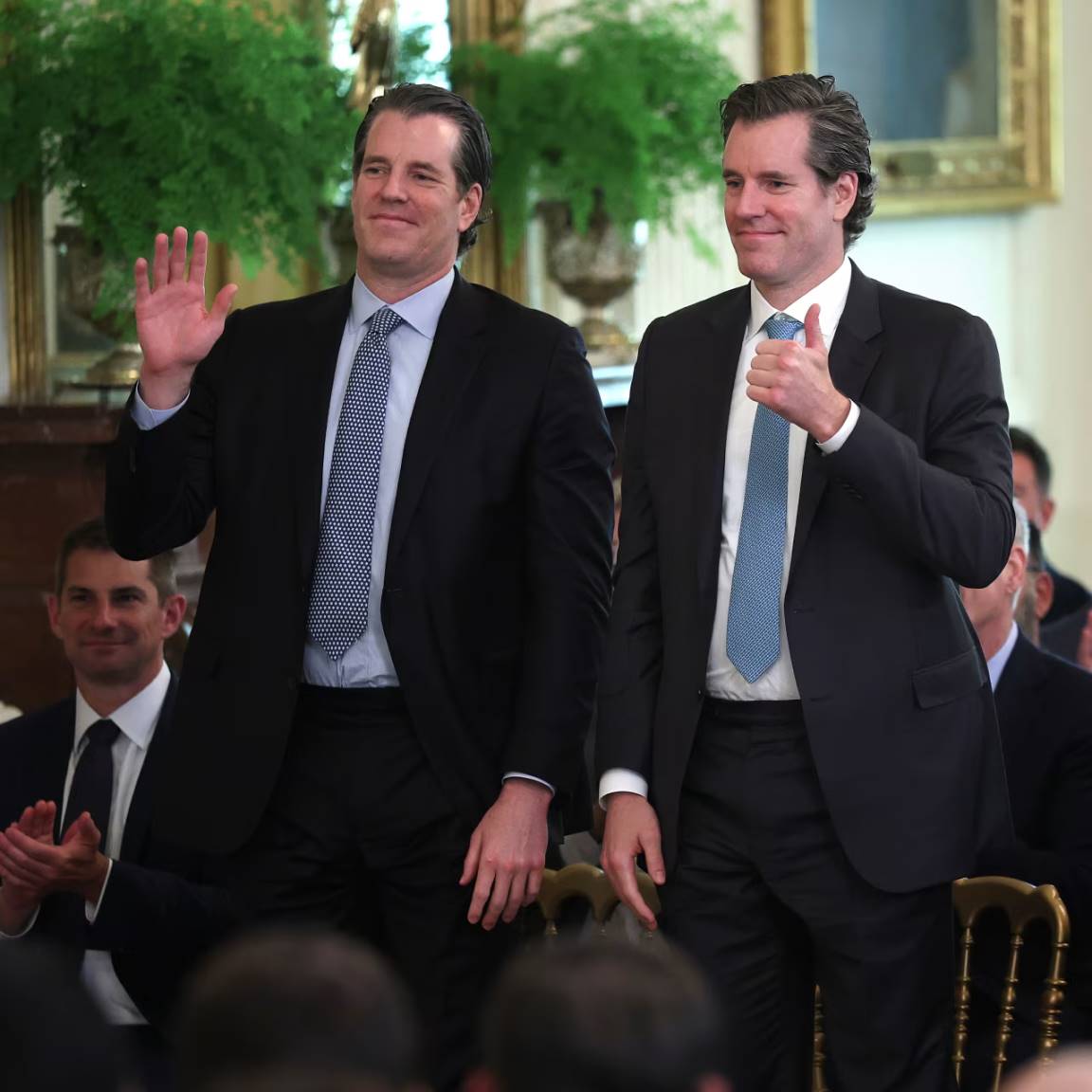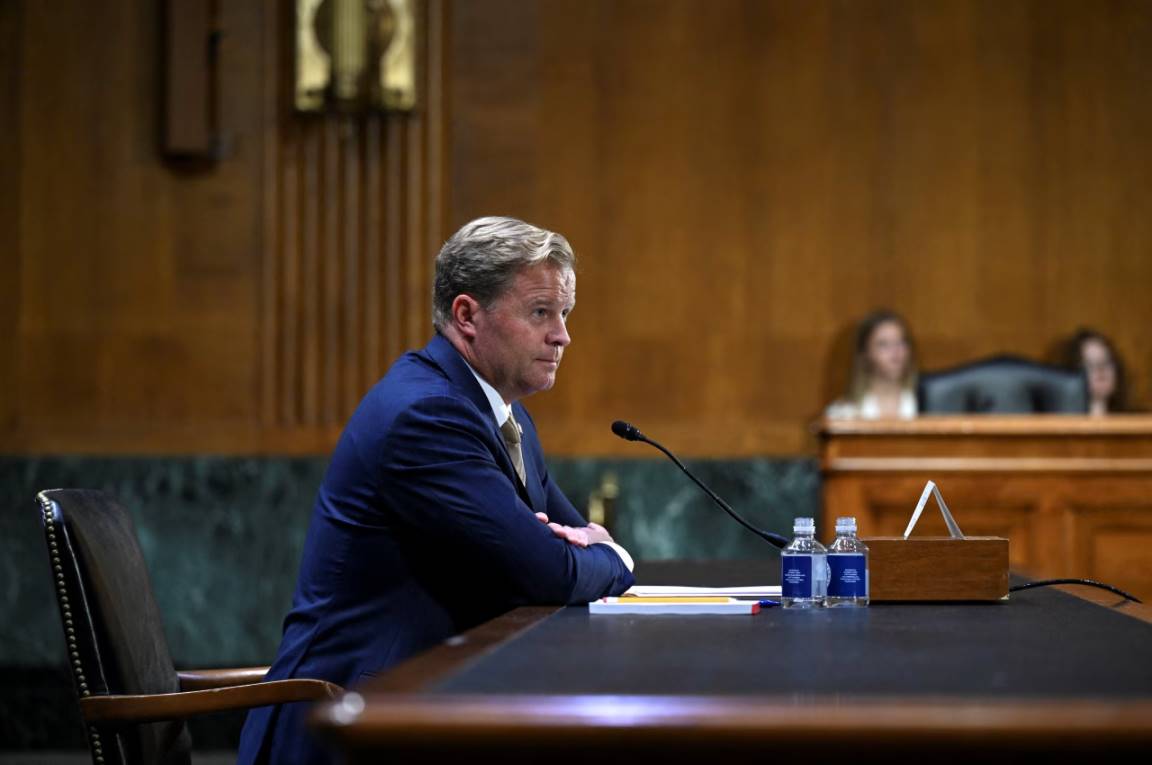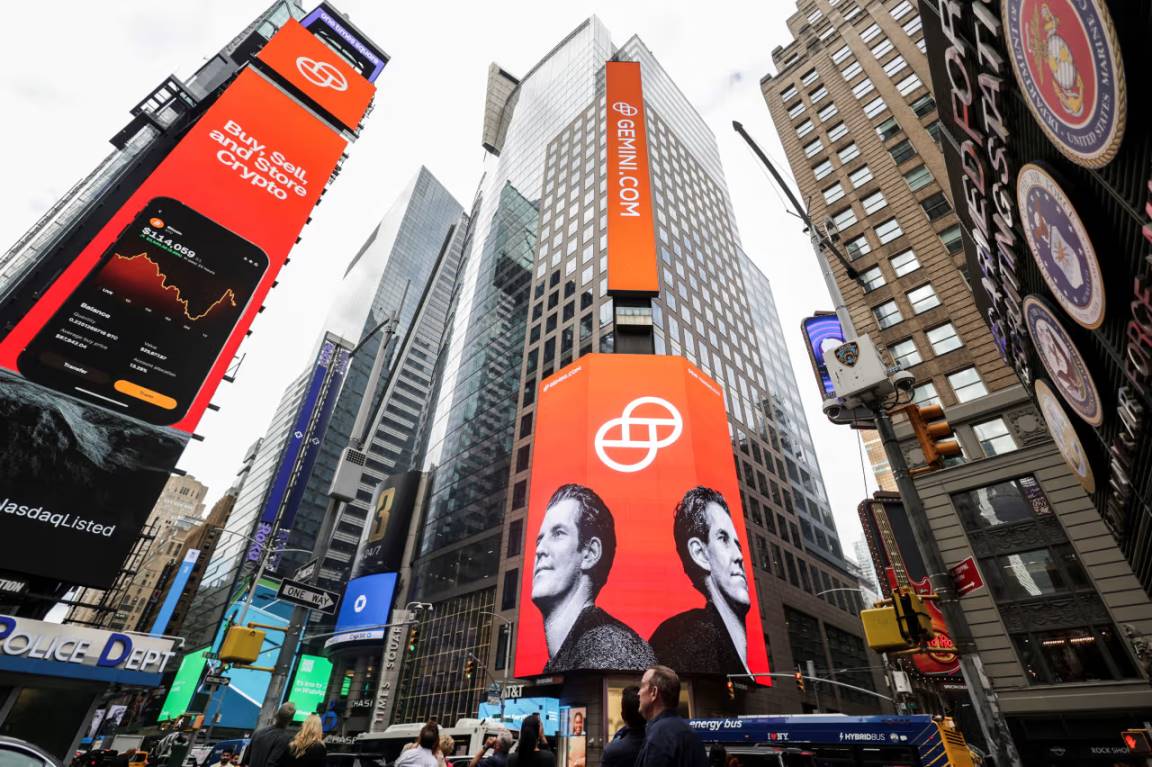By Alexander Osipovich, Vicky Ge Huang, and Amrith Ramkumar, The Wall Street Journal
Compiled by Luffy, Foresight News
Tyler and Cameron Winklevoss are avowed supporters of President Trump, but they have a long-standing feud with one of Trump's nominees.
Last week, as the billionaire brothers prepared to go public with their cryptocurrency company, Gemini Space Station, their dispute with Brian Quintenz, Trump's nominee to chair the Commodity Futures Trading Commission (CFTC), surfaced.

Quintenz made public private messages from Tyler, in which Tyler expressed dissatisfaction with the Biden administration's crackdown on his company and asked the Trump-nominated official to help the brothers reopen the investigation into related matters.
"A 7-year legal hunt, what they've done to us is outrageous," Winklevoss wrote in July, according to screenshots of the conversation posted by Quintenz on Platform X.
Quintenz expressed sympathy but declined to comment on Gemini’s recent complaint against the CFTC. Days later, the brothers contacted President Trump and asked him to put a hold on Gemini’s nomination, according to people familiar with the matter. It has been in limbo ever since.
The 44-year-old Winklevoss twins, who supported Trump’s campaign and bankrolled pro-Trump political groups, are flexing their muscles in Washington. Like other cryptocurrency executives, they are eager for industry-friendly leadership at the CFTC, which plays a key role in regulating digital asset markets.
Quintenz, a pro-cryptocurrency Republican who has garnered support from numerous industry groups, has been bewildered by the Winklevoss brothers’ sniping campaign against him.

Lee Reiners, a Duke University lecturer and critic of the cryptocurrency industry, said: "This is completely a temper tantrum. The core is to retaliate and punish others... It has nothing to do with the future direction of policy."
The brothers, known as the "Winklevii," have a history of high-profile feuds. In one legal battle, featured in the film "The Social Network," they accused Harvard alumnus Mark Zuckerberg of stealing their idea for Facebook. The two former Olympic rowers ultimately received a $65 million cash and stock settlement.
They later became tech investors and began buying Bitcoin in 2012, when it was worth less than $10. In 2013, they attempted to launch the first exchange-traded fund (ETF) tracking Bitcoin, but it was rejected by the skeptical U.S. Securities and Exchange Commission (SEC).
The brothers launched cryptocurrency exchange Gemini in 2014, raising $425 million in its recent initial public offering. They currently hold approximately 75 million Gemini shares and control 94.7% of the voting rights.
After surging on its debut, Gemini's stock price has fallen over 20% this week, falling below its IPO price of $28. Despite its high brand recognition, Gemini has suffered losses in recent quarters and faces pressure from larger competitors like Coinbase.
In last year’s election, the brothers supported Trump’s presidential campaign and donated nearly $5 million to a pro-cryptocurrency group that pours money into industry-friendly candidates for Congress. Last month, the Winklevoss twins donated $21 million in Bitcoin to the Digital Freedom Fund, a newly formed pro-cryptocurrency, pro-Trump super PAC.
Trump has repeatedly praised the Winklevoss twins' looks, calling them "male models with exceptional intelligence" in a speech at a Bitcoin conference last year. This speech marked Trump's transformation from a cryptocurrency skeptic to a staunch supporter. Earlier this year, the Winklevoss twins partnered with investors including White House cryptocurrency director David Sacks and Donald Trump Jr. to establish Executive Branch, a private club in Washington, D.C., with a $500,000 membership fee and annual dues.

In his message to Quintenz, Tyler Winklevoss mentioned the $5 million settlement that Gemini reluctantly reached with the CFTC in the final days of the Biden administration, which was a sore spot for the brothers.
After Trump began his second term, Gemini filed a complaint with the CFTC Inspector General, alleging unethical behavior by lawyers involved in the investigation.
In a July conversation with Quintenz, Winklevoss wrote, “I am disappointed and surprised that you haven’t seen, heard, or read our complaint.”
Shortly after the brothers contacted Trump (whose contact was first reported by Politico), the Senate committee that oversees the CFTC canceled a vote to advance Quintenz's nomination, citing "a request from the White House." Tyler Winklevoss subsequently criticized Quintenz in an interview with the New York Post for being "out of sync with President Trump."
The Winklevoss twins have benefited from the Trump administration's relaxed regulation of cryptocurrencies. On Monday, the SEC and Gemini announced they had reached a "resolution in principle" in a lawsuit filed during the Biden administration. The SEC had accused Gemini of violating investor protection laws by offering a deposit-like product that paid customers up to 8% interest. The SEC suspended the lawsuit after Trump took office.
The product collapsed in 2022 due to the bankruptcy of the partner company, prompting a separate lawsuit filed by New York Attorney General Letitia James, alleging that Gemini misled investors about the product's safety. Last year, Gemini paid approximately $50 million to settle with James without admitting wrongdoing.
Similar to Trump, the Winklevoss twins have called for retaliation against officials they believe have treated them unfairly. Cameron has called for the "immediate dismissal" of SEC lawyers involved in lawsuits against cryptocurrency companies during the Biden administration. Following the return of former SEC Chairman Gary Gensler, their industry rival, to teach at MIT, Tyler has stated that Gemini will not hire any MIT graduates.
“It’s been great to see the situation change and see the balance tip back in our favor,” Cameron said at the White House Cryptocurrency Summit in March.








